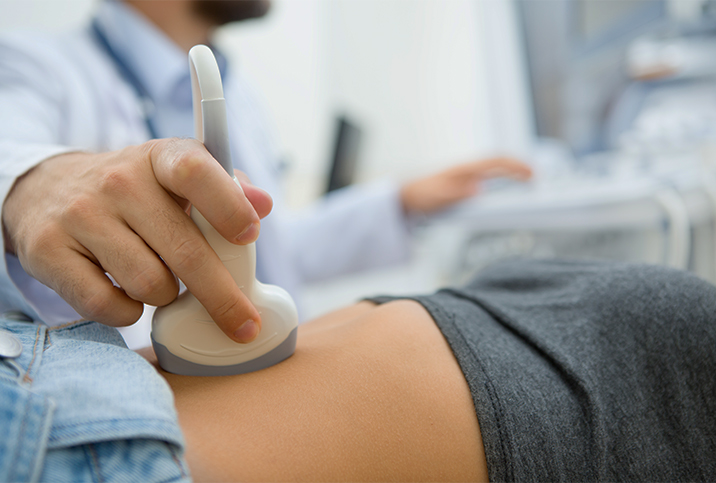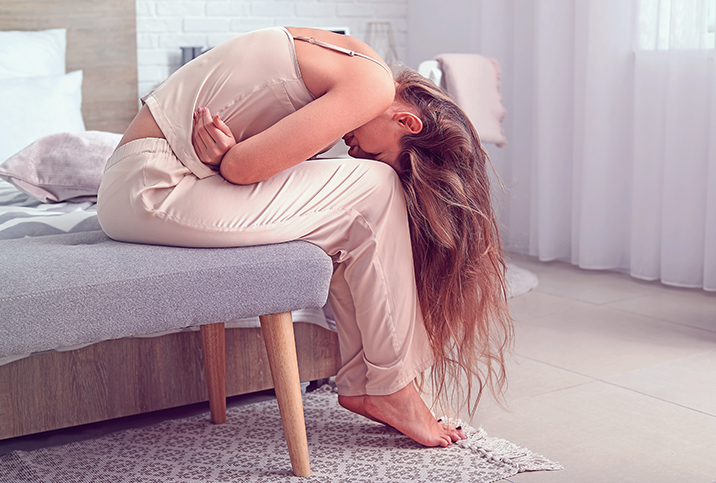Amy Schumer Speaks Candidly About Struggle With Endometriosis

Most women suffer from endometriosis for many years before receiving a proper diagnosis. Comedian Amy Schumer is one of them.
On average, women in the United States endure endometriosis for 10 years before getting a proper diagnosis, according to Yale School of Medicine.
Schumer spoke candidly about her endometriosis struggle in a preview clip for her appearance on the Paramount+ docuseries, "The Checkup With Dr. David Agus," which first aired Dec. 13. Schumer called endometriosis, a common gynecological condition, a "lonely disease."
"For months, I had been complaining of pain. It was just this pain you can't see, and there is the inclination to always think a woman is just being dramatic," Schumer told Agus in the interview.
Endometriosis is a painful condition where tissue similar to the uterine lining (endometrium) grows outside the uterus on areas of the body where it doesn't belong. During a typical menstrual cycle, uterine tissue thickens and then sheds—causing a period—but with endometriosis, this thickening tissue has nowhere to go, causing inflammation and pain.
According to Kecia Gaither, M.D., a double board-certified in OB-GYN and director of perinatal services and maternal-fetal medicine at NYC Health + Hospitals/Lincoln in the Bronx, endometriosis is often diagnosed late due to lack of detection. Sometimes, "the abdominal-pelvic pain is mistaken for bad menstrual cramps," Gaither said.
This was Schumer's experience. "You tell someone you get really bad cramps, and they're like, 'Oh, it's being a woman,'" Schumer said on the show. "I've been in so much pain, you know, my whole life—not just the week of my period. It's during ovulation. I would hopefully get a good week a month where I wasn't in pretty significant pain, still trying to achieve, still trying to go through life."
According to Tara Scott, M.D., an OB-GYN based in Ohio, pain outside your period is a telltale symptom of endometriosis. Other symptoms include pain that's not controlled with typical over-the-counter remedies like Advil or Alleve, Scott said.
"Also, people with endometriosis have painful intercourse," Scott said. "They sometimes have pain with bowel movements, ovulation and even urination."
Other symptoms include intermenstrual bleeding, diarrhea and gastrointestinal issues and infertility, added Gaither, who also noted endometriosis can also sometimes be asymptomatic.
Schumer's recovery journey
In 2021, Schumer underwent surgery for endometriosis, as she revealed in an Instagram video. As part of the procedure, her uterus and appendix were removed.
"We've been told for so long that we're annoying and dramatic and all these things, and we're not," she said in the video, addressing her fans. "My pain is real, your pain is real. We have to advocate for ourselves."
In the aftermath of the surgery, Schumer told Agus she "feels like a new person."
"I feel like someone lifted this veil that had been over me and I just felt like a different person and like a new mom," she said.
Surgical removal of the uterus isn't the only possible treatment for endometriosis, according to Gaither. "Treatment is predicated based on signs and symptoms, and may include pain medication or oral contraceptives to control and regulate hormones," she said.
Other treatment options include progestin therapy, which halts menstruation and the growth of endometrial implants, and aromatase inhibitors, which reduce estrogen levels in the body, Gaither said.
Gaither also cited a treatment involving GnRH agonists/antagonists, which blocks the production of ovarian hormones and creates an artificial menopause, causing the endometrial tissue to shrink.
Advocating for yourself
Schumer joins a growing chorus of celebrities who have spoken out about their experience with endometriosis, including model and former Miss USA and Miss Universe Olivia Culpo and actress Tia Mowry.
Early detection and diagnosis is the best way to prevent endometriosis, according to the Endometriosis Foundation of America. If you are struggling with painful periods, heavy bleeding or abdominal cramps, take Schumer's advice and advocate for yourself.
"You've got to advocate for yourself," Scott agreed. "Don't let people dismiss you. Go get a second opinion and find someone who is an endometriosis or hormone specialist. If you're not feeling heard, try to get a second opinion.
"You should not be having such incapacitating pain on your period that you can't do your normal activities," Scott emphasized.


















